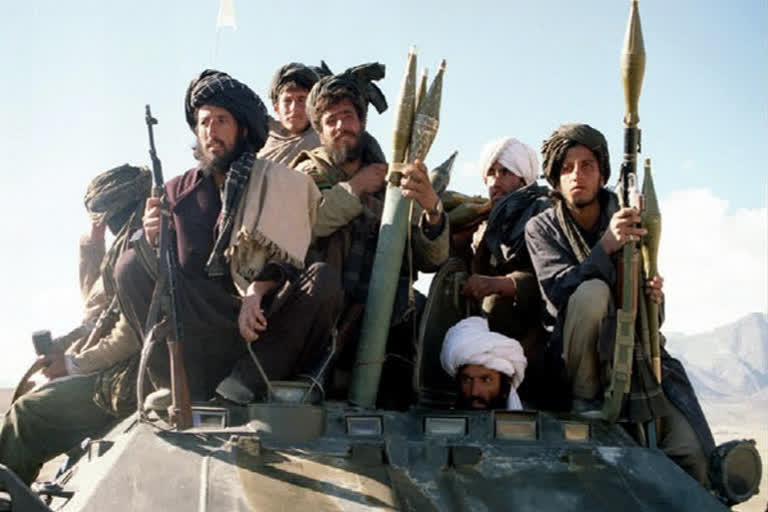New Delhi: Panjshir Valley, known for its resistance against extremist forces like Al Qaeda and the Taliban in Kabul, is facing the biggest test of the times. While the famed resistance of the valley is waning to the shock of the world, Ahmad Massoud, the 32-year-old leader of the National Resistance Front of Afghanistan (NRFA) said the movement will fight till its last breath to save the population of around 1.75 lakh.
Massoud has refuted the claims of the Taliban's complete take over of the valley and has made an emotional appeal to the people of Afghanistan. In an audio message sent to the media, he said, "Wherever you are, inside or outside, I call on you to begin a national uprising for the dignity, freedom and prosperity of our country."
Located in the Hindukush Mountains, Panjshir is situated along the Panjshir River that covers the entire stretch of the valley. With Bazarak as the provincial capital, it is surrounded by Baghlan and Takhar in the north, Badakhshan and Nuristan in the east, Laghman and Kapisa in the south and Parwan in the west. The steep mountain cliffs on either side of the river make it next to impossible to navigate through via land routes. The mountains, however, have some routes that can be trekked along but are known only to the locals and not meant for large forces to enter. The valley's topography, limited approach roads and the ethnic Tajik population make it so difficult for outsiders to enter the valley.
Khawak Pass that links Panjshir with Baghlan Province and the Anjuman Pass - connect the valley to Badakhshan provinces of Afghanistan - are the only two gateways for the outside world to enter Panjshir. However, the tribals supporting Ahmed Massoud and Amrulah Saleh, the former vice-president of Afghanistan, had managed to block the Taliban from entering the valley.
Also read:Resistance forces seek end to war as Taliban claim control of Panjshir
Another important reason for Panjshir's defence is that the valley comprises a predominant Tajik population that always receives support from Tajikistan, the valley's neighbour the North East. This loyalty coupled with manpower is another reason why the valley has always remained unconquered. The rich mineral resources of the valley have allowed the locals to lead a healthy lifestyle and their income is more than the average income of Afghanistan.
